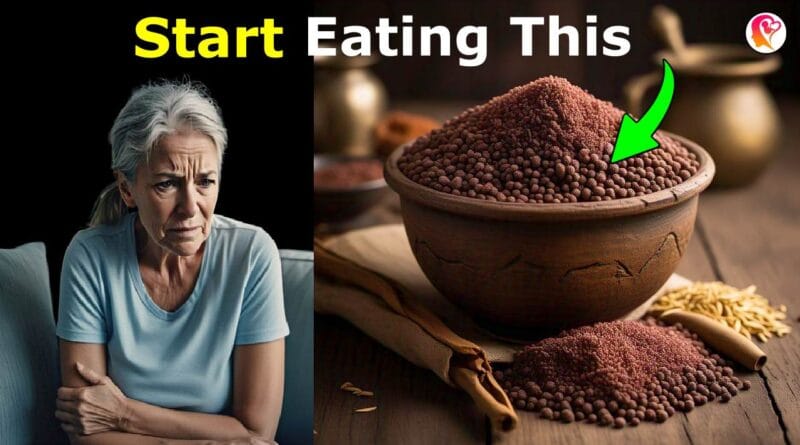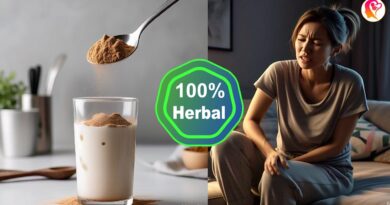Muscle loss after 60 : Prevent Sarcopenia Naturally
If you or someone you love is over 60, what I’m about to share could change everything.
Muscle loss after 60 isn’t just about feeling a little weaker—it’s a hidden epidemic. One that quietly steals mobility, independence, and health. And the shocking part? It can begin without any warning signs.
But what if I told you that one overlooked food—and a few simple daily habits—can actually reverse this process?
Stick with me till the end because I’m about to reveal science-backed foods, surprising facts, and life-saving tips that most doctors aren’t even talking about. Let’s dive in.”
📊 Quick Stat Drop – Retention Strategy
“Every 19 seconds, a senior is hospitalized due to a fall—and muscle weakness is the #1 reason. That’s not aging. That’s preventable muscle loss—what scientists call sarcopenia.
But guess what? You don’t need a prescription to fight back. You need the right food… and I bet it’s not in your fridge right now.”
As we age, our bodies naturally lose muscle mass—up to 1% every year after 50. That means by 70, you could lose nearly a third of your muscle strength—making daily tasks harder and increasing your risk of falls, fractures, and frailty.
This silent decline is called sarcopenia—and it’s the hidden reason why 87% of nursing home admissions happen. But here’s the truth: it’s reversible.“
🍲 Reveal + Science Insight
“Now, let’s talk about the one powerhouse food that’s reversing muscle loss in 91% of seniors studied…
It’s not steak. Not eggs. It’s… whey protein isolate.
This dairy-derived protein contains the highest levels of leucine—an amino acid that reawakens aging muscles by kickstarting protein synthesis. And unlike most proteins, whey is fast-absorbing, making it ideal post-walk or workout.
👉 A study from McMaster University found that seniors taking whey gained 40% more muscle than those eating regular high-protein meals. That’s HUGE.”
Bonus Tip: Blend 1 scoop of clean, sugar-free whey isolate with unsweetened almond milk, frozen berries, and a handful of spinach—BOOM, a muscle-boosting smoothie that fuels recovery, boosts immunity, and tastes amazing.”
💪 Greek Yogurt at Night
Greek yogurt—especially full-fat, plain—releases slow-digesting casein protein, which prevents muscle breakdown while you sleep.
✅ Add nuts and chia seeds for an extra protein and omega-3 boost.
🐟 Wild-Caught Salmon Twice a Week
Rich in EPA and DHA, omega-3s in salmon improve muscle protein sensitivity, so your body actually uses the protein you eat. Plus, it’s packed with vitamin D—crucial for muscle and bone strength.
🍳 Whole Eggs, Not Just Whites
Don’t skip the yolks! That’s where you’ll find choline, vitamin D, and most of the leucine. Studies show whole eggs boost muscle repair 40% more than whites alone.
🌿 Leafy Greens
Spinach, kale, and beet greens are high in nitrates that improve blood flow to muscles, helping with nutrient delivery and muscle recovery. Two cups a day can make a noticeable difference.
🥜 Nuts & Seeds
Almonds and pumpkin seeds are rich in magnesium and zinc, which prevent cramps and naturally boost testosterone—yes, even in your 70s.
🚶♂️ Move Daily—Even Just a Little
Resistance bands, chair squats, light walks—movement tells your muscles, “Hey, we still need you!” Aim for 20 minutes a day.
🛌 Sleep is Recovery Time
Muscles repair while you rest. Target 7-8 hours. Magnesium-rich foods like leafy greens or a warm cup of golden milk can help improve deep sleep.
💧 Stay Hydrated
Dehydration weakens muscles. Sip water consistently throughout the day. Add a pinch of sea salt or lemon for natural electrolytes.
🌞 Get Some Sun (or Vitamin D3)
Vitamin D deficiency can cause muscle weakness. If you’re not getting 15 minutes of sunlight daily, talk to your doctor about a supplement.
🌿 Ashwagandha
This ancient adaptogen has been shown to increase muscle mass and reduce cortisol, a stress hormone that breaks down muscle.
🌟 Curcumin (from Turmeric)
Anti-inflammatory and protective against muscle degeneration. Combine with black pepper for better absorption.
🍒 Tart Cherry Juice
Reduces post-exercise soreness and inflammation—great for muscle recovery in older adults.
🎯 Empowering & Actionable
“Remember this: Muscle loss isn’t destiny. It’s a signal—and you have the power to answer it.
With one scoop of whey, a few simple foods, and daily movement, you can protect your body, reclaim your energy, and live independently for years to come.
So, which of these habits will YOU start today? Drop it in the comments. Let’s inspire each other.”
🙏
If this helped you or could help someone you love, give this video a thumbs up, subscribe for weekly health insights, and share it with a friend or parent.
You’re not just aging—you’re evolving. And we’re here to help you thrive. 💪
Stay Happy and Stay Healthy
❓ Frequently Asked Questions (FAQs)
1. What is sarcopenia, and how can I tell if I have it?
Sarcopenia is the age-related loss of muscle mass and strength, often starting after the age of 50. Signs include difficulty climbing stairs, frequent falls, feeling weak, or struggling to rise from a chair. It often goes unnoticed until mobility becomes an issue.
2. Can seniors really rebuild muscle after 60 or 70?
Yes! Studies show that with the right diet, strength-based movement, and protein intake—especially whey protein and foods rich in leucine—seniors can regain lost muscle and dramatically improve strength and independence.
3. What is the best time to consume protein for muscle preservation?
For optimal muscle repair and growth, consume 20–30g of high-quality protein within 30 minutes after exercise. Slow-digesting proteins like Greek yogurt are best before bedtime to prevent overnight muscle breakdown.
4. What foods help prevent muscle loss in seniors?
Top muscle-preserving foods include whey protein isolate, Greek yogurt, wild-caught salmon, leafy greens, eggs, nuts, beans, and berries. These are rich in proteins, omega-3s, antioxidants, and minerals essential for muscle health.
5. Are there natural remedies to stop or reverse muscle loss?
Yes. Ashwagandha can improve muscle mass and strength, curcumin (turmeric) reduces inflammation, and tart cherry juice helps with recovery. Combine these with proper nutrition and light resistance training for best results.
6. How much protein should a senior eat daily to maintain muscle?
Experts recommend 1.0 to 1.2 grams of protein per kilogram of body weight for healthy seniors. That’s roughly 65–90g of protein per day, depending on your weight, spread across meals for maximum absorption.




